1. You Know What a “Wawa” or “Sheetz” Is—and Have a Favorite
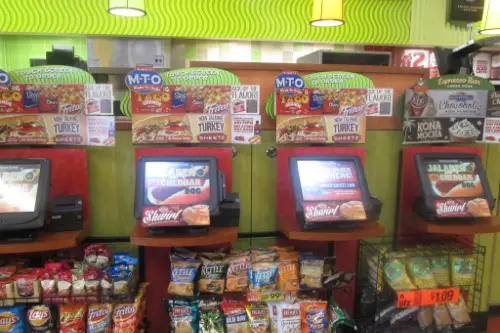
If your eyes light up at the mention of Wawa, you’re almost certainly from eastern Pennsylvania or parts of New Jersey. Sheetz diehards, on the other hand, are typically western Pennsylvanians or West Virginians. These convenience stores are more than just gas stations—they’re part of local identity, according to Danny Palumbo of Takeout. People from outside the region often don’t understand why anyone would crave a hoagie from a gas pump.
But for locals, Wawa and Sheetz are where you grew up grabbing late-night snacks or road trip fuel. The loyalty runs deep—there are literal online battles over which one reigns supreme. Ask someone from Philly about Wawa and they’ll wax poetic about the coffee and touchscreen ordering. That kind of love doesn’t develop unless it’s baked into your upbringing.
2. You Have a Deep Opinion About What Counts as “Barbecue”
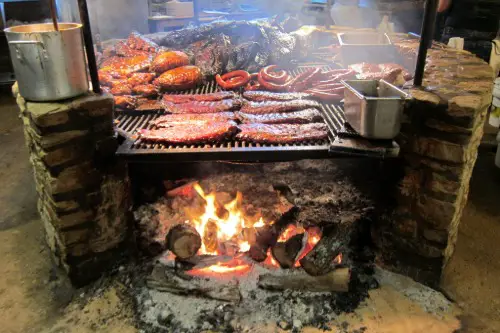
In the Carolinas, barbecue means pulled pork, usually with a vinegar or mustard-based sauce. In Texas, it’s beef—particularly brisket—smoked low and slow, Max Falkowitz of Taste Cooking explains. Kansas City adds a sweet tomato-based sauce to everything, while Memphis swears by dry rubs. The word “barbecue” itself means wildly different things depending on where you’re from.
If you say “let’s barbecue” and pull out a grill for burgers, you’ve probably never lived in the South. In those parts, “barbecue” isn’t a verb, it’s a noun, and a revered one at that. The moment you reveal your meat and sauce preferences, you’re giving away your ZIP code. It’s more than just food—it’s regional pride on a plate.
3. You Say “Soda,” “Pop,” or Just “Coke” for Everything
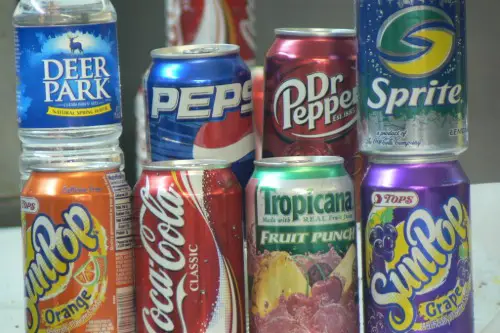
The way you refer to a fizzy drink might as well be a GPS tracker. If you say “soda,” chances are you’re from the Northeast or California. If it’s “pop,” that’s a Midwest dead giveaway—think Michigan, Ohio, or parts of the Pacific Northwest. But if you call every soft drink “Coke,” even when you’re drinking Sprite, welcome to the South, Valerie Fraser Luesse of Southern Living says.
This regionalism goes way beyond semantics—it’s cultural shorthand. In Georgia, for example, asking for a “Coke” might follow with, “What kind?” It’s such a well-studied linguistic divide that entire maps have been drawn showing who says what. You don’t realize how strong your regional loyalty is until someone corrects you for ordering a “pop” in New York.
4. You Freak Out Over the First Snowfall—or Shrug It Off

If one inch of snow shuts everything down and sends you running for bread and milk, you’re likely from the South. In places like Atlanta or Dallas, snow is rare and disruptive, so the panic is understandable. But if you barely blink at a blizzard, you’re probably from the Midwest or Northeast. In Buffalo or Minneapolis, snow is just Tuesday.
This reaction isn’t just about climate—it’s cultural memory. Growing up in a snowy area means learning to shovel a driveway before school or driving through a whiteout without thinking twice. Southerners just don’t have the infrastructure—or emotional bandwidth—for that. So your snow response says a lot more than you think.
5. You Refer to a Group as “Y’all,” “You Guys,” or “Youse”
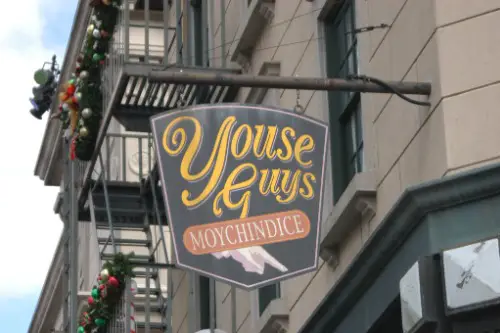
Your second-person plural gives you away instantly. “Y’all” is the classic Southernism, and it’s more grammatically efficient than people give it credit for. In the Midwest and Northeast, it’s usually “you guys,” regardless of gender. But go to Philly or parts of New Jersey and you might hear “youse,” which definitely raises eyebrows elsewhere, according to Arika Okrent of Mental Floss.
These little linguistic quirks stick with people for life. Say “y’all” in Boston and someone might assume you just flew in from Atlanta. It’s also a quick way to form connections—people love finding others who speak the same dialect. It’s like a verbal handshake that hints at where you grew up.
6. You Know the Importance of College Football—and Which Team to Hate
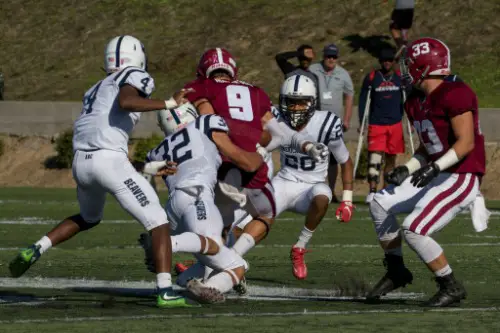
If Saturdays in the fall mean tailgates, rivalries, and screaming at the TV, you’re likely from the South or Midwest. In Alabama, the Iron Bowl (Auburn vs. Alabama) isn’t just a game—it’s a way of life. In Ohio, it’s all about Michigan vs. Ohio State, a rivalry that turns coworkers into frenemies. In many parts of the country, college football trumps the NFL.
These loyalties are passed down like family heirlooms. A baby in Georgia might wear a Bulldogs onesie before they can even walk. It’s not just about sports—it’s about identity, community, and tradition. Even your fall wardrobe choices say something about your roots.
7. You’ve Got a Deep Love—or Hate—for Ranch Dressing
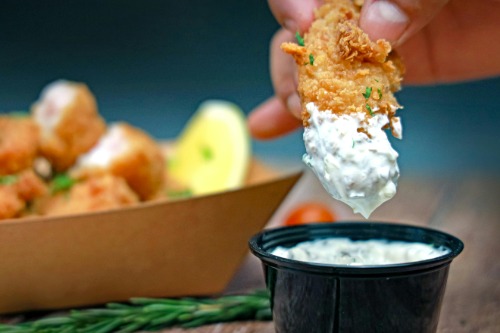
In the Midwest, ranch is basically a food group. People there will put it on everything from pizza to French fries to casseroles. Head to California or the Northeast, and you might find ranch used sparingly—or even with a little judgment. It’s not universally loved, and that’s part of what makes it such a regional marker.
The Midwest’s devotion to ranch is almost spiritual. You’ll find gallon-sized bottles at supermarkets and restaurants proudly offering it as a dipping option for literally anything. It’s comfort food, sure—but also a symbol of a culture that values familiar, hearty flavors. So if you reach for the ranch, odds are you’re somewhere between Nebraska and Indiana.
8. You Call That Roadside Food a “Taco Truck” or a “Roach Coach”
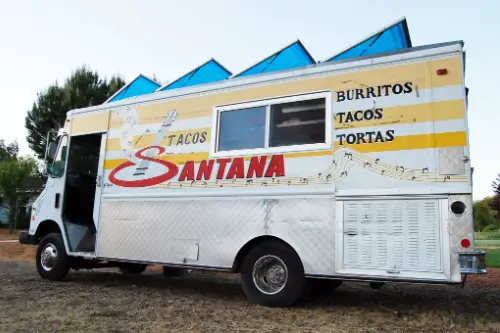
Out West, especially in California, “taco truck” brings to mind mouthwatering al pastor, carne asada, and salsa verde. But in parts of the Northeast or Midwest, some people still use the old-school (and kinda unflattering) term “roach coach.” The term used to be more common for worksite food trucks, but it sticks around in some areas. How you label that mobile food unit says a lot about your geography—and your food expectations.
In cities like Los Angeles or Austin, taco trucks are practically gourmet institutions. You’ll hear locals debate the best one like they’re talking about five-star restaurants. But in older industrial cities, the association with greasy spoon lunches from a truck still lingers. So your taco truck terminology might reveal how your region views street food culture.
9. You Know What a “Boil” Is—And It’s Not a Skin Condition
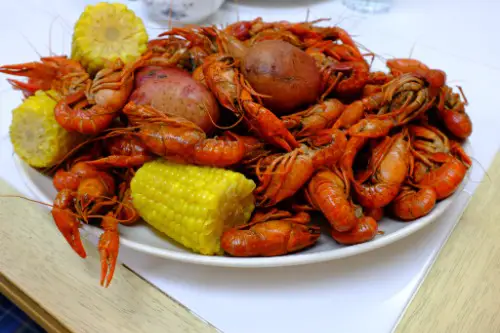
If you hear “crawfish boil” or “low country boil” and immediately think of corn, potatoes, and shellfish spread across newspaper, you’ve likely spent time in the Gulf Coast or the Carolinas. These are culinary events, not just meals—they’re social gatherings with deep roots. In Louisiana, it’s all about crawfish; in Georgia and the Carolinas, shrimp takes the spotlight. Either way, it’s hands-on, messy, and utterly regional.
Someone from the Northeast might equate it with a clambake, which is a whole different vibe. The boil is less about etiquette and more about community. It’s where Southern hospitality meets seafood obsession. If you know how to twist a crawfish tail with one hand, we know where you’ve been.
10. You Measure Distance in Hours, Not Miles

In Texas and much of the Midwest, people don’t say something is “50 miles away”—they say it’s “an hour and a half.” This isn’t laziness—it’s just more practical when your roads are flat and your speed limit is 75 mph. In the Northeast, though, 50 miles could mean two hours depending on traffic and tolls. So they tend to think in miles because time is too unpredictable.
This mindset shift is about geography and infrastructure. In wide-open states, you’re used to long drives that feel short. In compact, congested regions, every mile could be a headache. So how you talk about travel distances gives a pretty big hint about your home base.
11. You’ve Got Strong Feelings About Bagels or Biscuits
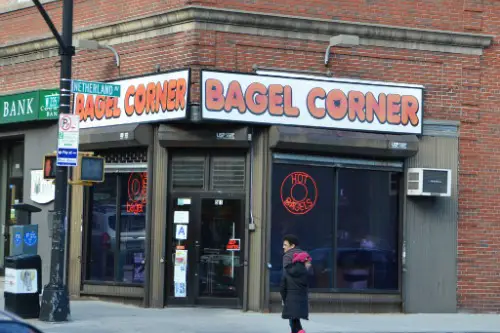
If you think the perfect breakfast starts with a chewy, boiled bagel, you’re probably from New York or New Jersey. But if you start the day with a fluffy, buttery biscuit, that’s classic South. These foods are more than just breakfast—they’re cultural symbols. And yes, locals will tell you there’s a right way to make each one.
You can start arguments over which bagel shop in Brooklyn is the best, or whether Cracker Barrel’s biscuits count. It’s not just taste—it’s nostalgia and tradition on a plate. You grow up associating certain foods with home, and that sticks. So whether it’s everything bagels or sausage gravy, you’re revealing your roots with every bite.
12. You Have an Accent—But Think Other People Have One

People from Chicago, Boston, or New Orleans often think they talk normally—and everyone else sounds weird. Of course, every region has its own linguistic flavor, from dropped R’s in Boston to drawn-out vowels in Minnesota. But locals rarely hear their own accents until someone points it out. That defensiveness? It’s pure regional pride.
Accents are wrapped up in identity, even if we don’t always notice them. Someone from Brooklyn might bristle when teased about saying “caw-fee,” while a Southerner might lean into a drawl on purpose. It’s one of the quickest ways to peg someone’s roots. And chances are, you hear it way more than they do.
13. You Know What “The Shore,” “Up North,” or “The Lake” Means

People from New Jersey say they’re going “down the shore,” and everyone else just has to guess what that means. In Michigan, “up north” is code for a cabin trip, and in Minnesota, “the lake” doesn’t even need a name. These are hyperlocal terms that carry emotional weight. If you get them, you get them.
They’re tied to family traditions, summer vacations, and decades of repetition. No one from outside the region would instinctively know that “going to the shore” means Ocean City or Wildwood. But if you grew up there, it’s second nature. Your shorthand for local getaways is basically a linguistic souvenir.
14. You Treat State Fairs Like They’re National Holidays
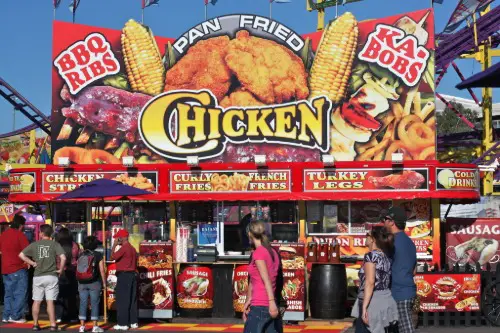
In Iowa, Texas, and Minnesota especially, state fairs are a big deal. We’re talking butter sculptures, deep-fried everything, and concerts you plan around. These aren’t just events—they’re annual traditions that bring entire communities together. People travel hours, take off work, and go every single year.
It’s not just about the rides or the food—it’s about local pride and ritual. If you’ve ever eaten something on a stick while watching a livestock competition, you probably know the feeling. And if you think state fairs are corny, you’ve probably never been to a real one. That excitement? It’s distinctly regional—and it sticks with you for life.


